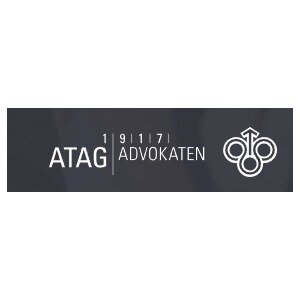Best Immigration Lawyers in Switzerland
Share your needs with us, get contacted by law firms.
Free. Takes 2 min.
Or refine your search by selecting a city:
List of the best lawyers in Switzerland
About Immigration Law in Switzerland
Switzerland is known for its picturesque landscapes, high standard of living, and robust economy. As a result, it attracts many foreigners seeking opportunities both for work and for a better quality of life. Immigration law in Switzerland is designed to regulate the entry, stay, and departure of foreign nationals. The laws focus on integrating immigrants into the Swiss society while balancing the economic needs of the country. As Switzerland is not part of the European Union, it operates a dual admission system, one for EU/EFTA nationals and another for third-country nationals.
Why You May Need a Lawyer
There are several situations where legal assistance may be essential in navigating the Swiss immigration system. These include applying for residence or work permits, seeking asylum, handling deportation or appeal processes, and striving to reunite with family members through immigration channels. An immigration lawyer can provide guidance, assist with paperwork, and represent individuals in legal proceedings, ensuring compliance with all relevant laws and regulations.
Local Laws Overview
Switzerland's immigration policies are governed by several key legal instruments, including the Foreign Nationals and Integration Act (FNIA), the Asylum Act, and bilateral agreements with the EU. Key considerations include the distinction between types of permits (e.g., L, B, C permits), quotas on permits for third-country nationals, stringent asylum procedures, specific pathways for family reunification, and language requirements integral to the integration process. Additionally, the Swiss labor market tests and cantonal differences can significantly influence immigration matters.
Frequently Asked Questions
What types of residence permits are available in Switzerland?
Switzerland offers various permits, including L (short-term), B (temporary), and C (permanent) based on factors like employment, studies, or family reunification.
How can EU/EFTA nationals obtain work permits in Switzerland?
EU/EFTA nationals benefit from the Agreement on the Free Movement of Persons, allowing them to reside and work with minimal administrative hurdles, subject mainly to registration with cantonal authorities.
What are the requirements for a third-country national to get a work permit?
This involves passing labor market tests, proving no Swiss or EU national can fill the job, and the employer demonstrating compliance with Swiss wage and working conditions.
Is it possible to obtain Swiss citizenship as a foreigner?
Yes, through regular (after ten years of residency) or facilitated naturalization (e.g., marriage to a Swiss national), meeting criteria like language proficiency and integration.
How does family reunification work under Swiss immigration law?
Family reunification permits are available for spouses and children, contingent on meeting financial, housing, and sometimes language requirements.
What is the asylum process in Switzerland?
Switzerland processes asylum requests thoroughly, requiring applicants to prove persecution or risk in their home countries under the Asylum Act.
Can I study in Switzerland as a foreign citizen?
Student visas are available, requiring admission from a Swiss educational institution, proof of financial means, and health insurance coverage.
How are residency permits renewed or extended?
Renewal depends on criteria such as continuous stay, employment status, integration progress, and sometimes requires cantonal or federal approval.
Are there language requirements for immigrants in Switzerland?
Yes, especially for long-term residency or citizenship applications, proving proficiency in the local language of the residing canton is often necessary.
What happens if someone is denied a visa or permit?
Denials can be appealed, depending on the type and reason, with legal advice recommended for navigating the often complex appeals process.
Additional Resources
For further assistance, individuals can reach out to the State Secretariat for Migration (SEM), local cantonal migration offices, Swiss embassies or consulates abroad, and non-governmental organizations like the Swiss Refugee Council. Information can also be obtained from legal aid clinics and immigrant support groups, which provide guidance and support for navigating Swiss immigration law.
Next Steps
If you require legal assistance with immigration issues, start by gathering all necessary documentation related to your case. Consider consulting with an immigration lawyer experienced with Swiss law to evaluate your situation and advise on potential pathways. It may also be helpful to attend informative sessions provided by local councils or migrant support services to deepen your understanding of your rights and obligations. Remember, seeking professional legal guidance is crucial in ensuring that your application or appeal is processed smoothly and efficiently.
Lawzana helps you find the best lawyers and law firms in Switzerland through a curated and pre-screened list of qualified legal professionals. Our platform offers rankings and detailed profiles of attorneys and law firms, allowing you to compare based on practice areas, including Immigration, experience, and client feedback.
Each profile includes a description of the firm's areas of practice, client reviews, team members and partners, year of establishment, spoken languages, office locations, contact information, social media presence, and any published articles or resources. Most firms on our platform speak English and are experienced in both local and international legal matters.
Get a quote from top-rated law firms in Switzerland — quickly, securely, and without unnecessary hassle.
Disclaimer:
The information provided on this page is for general informational purposes only and does not constitute legal advice. While we strive to ensure the accuracy and relevance of the content, legal information may change over time, and interpretations of the law can vary. You should always consult with a qualified legal professional for advice specific to your situation.
We disclaim all liability for actions taken or not taken based on the content of this page. If you believe any information is incorrect or outdated, please contact us, and we will review and update it where appropriate.
Browse immigration law firms by service in Switzerland
Switzerland Attorneys in related practice areas.
Browse immigration law firms by city in Switzerland
Refine your search by selecting a city.

















